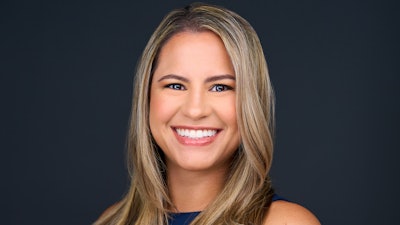
How would you feel if you received a refund request from an insurance plan (third-party payer) for $25,000 that was erroneously paid to you over a year ago? If you receive a formal notice from an insurance company stating that they have paid your claims "in error" (retroactive denials) and now want their money back, shock and surprise would likely overcome you. Surely they made a mistake?
A dental plan or third-party payer can make a mistake when it pays a dental provider. When they discover their mistake, they request a refund for what they calculate is the overpayment.
Some refund requests come to the dental providers two years after receiving payment. Sometimes, the patient is no longer with the practice and cannot be located. If the request is within the statute of limitations by the state, the dentist must now pay or appeal.
If the provider does not respond to the refund request, the payers don’t wait to collect, as the overpaid amount is deducted from future payments to the dentist. Sometimes, overpayments made to other dentists for the same patient may also affect future benefits payments.
How self-insured dental plans handle recoupments
The Employee Retirement Income Security Act of 1974 (ERISA) regulates self-insured dental plans. ERISA does not have a statute of limitations within its laws, leading to much room for interpretation from the insurance plan on when it can recoup funds from a provider.1
The supremacy clause within ERISA asserts the authority of ERISA over state laws concerning employee benefit plans. It explicitly states that ERISA "shall supersede any and all State laws insofar as they may now or hereafter relate to any employee benefit plan." This provision ensures that in the event of a conflict, ERISA takes precedence, providing a consistent and uniform regulatory framework for employee benefit plans at the federal level.2
Consequently, federal courts have formulated a distinct body of "ERISA common law," wherein they utilize state law statutes of limitations that closely align with and best address claims related to the disbursement of ERISA benefits. This approach allows for a nuanced and contextually appropriate application of legal principles in handling disputes over the payment of ERISA benefits.2
According to the ADA, payment of dental claims is subject to regulatory control and audit. Payers must be able to provide a documented rationale for each claim processed to state and federal regulators. Most payers will request a written refund before implementing an automatic deduction from a subsequent payment.3
It can be a costly and damaging situation. Most dental practices bill insurance companies for honest compensation for services rendered, whether in or out of the network, and for the most part, this system works.
There are different reasons or circumstances why an insurance company would ask you to refund money. In all instances, the reasons should be considered necessary to your practice.
Refund requests
Dental plans can review claims after payment to dentists and request claim payment refunds under certain circumstances. Each state has laws that apply to refunding monies to insurance plans called retroactive denial of coverage. The regulations for the statute of limitations (time limitations) for collecting refunds vary from state to state, and the limitations vary by the reason for the refund.4 For instance, if the insurance plan is requesting funds be returned because they have evidence of the following:
- Fraudulent billing on claims (services were not provided)
- Misrepresentations of claims (wrong patient, wrong provider)
- Inappropriate billing and coding on claims (The Code on Dental Procedures and Nomenclature [CDT] code doesn’t match the service, or the coded service was not performed)
The statute of limitations for refunds is not extended for the above reasons.
The statute of limitation may not apply and is extended for the following reasons:
- Coordination of benefits refund requests often have a longer recoupment time frame. The coordination of benefits was incorrectly calculated between the insurance payers and now amounts must be refunded, or secondary insurance needed to be identified as a payer on the claim.
- When services were rendered, the patient was ineligible (did not have coverage) and the dentist was given false information.
- The patient’s employer was changing dental insurance coverage and the new insurance should have been billed.
- An employer cancels a patient’s dental benefits but delays notifying the carrier. Claims for patients who are no longer covered may continue to be paid.
Numerous plan contracts include limitations on refund demands. While these contractual limitations may be less demanding than state laws, it is imperative to understand how each state handles insurance recoupments. The rules are subject to change in these areas, so staying on top of this issue is essential.
What methods or protocols must you initiate to avoid refunding monies to insurance plans?
- Present a treatment plan and estimated payment agreement for each patient (guardian) to understand and sign.
- Before treatment, ask the patient about a change of employment within the company that might affect current insurance coverage. Moving from one position to another can affect coverage. Claims may be paid if the patient is ineligible because the carrier doesn’t know about the employment change.
- Have the patient pay in full with the insurance to reimburse them at the new contract rate or if the insurance denies payment. This is recommended, particularly when claiming lab-produced prosthetics and implants (subject to in-network contract agreements).
- Verify patient insurance eligibility, coverage, and history before any treatment. This routine should be an office ritual.
- Fill out dental claims carefully; for instance, if a claim is submitted with the wrong provider name or a generic practice name, causing an in-network claim to be paid out of network.
- Code correctly. Incorrect use of the CDT Code on Dental Procedures and Nomenclature triggers refunds. If a CDT code is submitted that does not reflect the dentist's actual service, a greater benefit may be paid inappropriately. Clinical notes and sometimes medical necessity must be recorded on the patient chart to substantiate billed procedures.
- Billing for incomplete procedures as completed or seated. Procedures such as a permanent crown seat are billed for reimbursement, yet the patient refuses to keep scheduled appointments for the seat. Should the claim be paid, a refund may be requested when the insurance company asks to verify the final seat date. The patient is responsible for lab and office costs.
If you have researched the claim carefully and find, in your opinion, that the insurance company has made an error, you may appeal their decision by following their protocols for appeals.
References
- ERISA | U.S. Department of Labor. Dol.gov. Published 2019. https://www.dol.gov/general/topic/health-plans/erisa.
- Overpayment Refund Claims In Commercial Health Care Relationships | Winsten Law Group. www.winsten.com. Accessed March 1, 2024. https://www.winsten.com/articles/overpayment-refund-claims-commercial-health-care-relationships/.
- Overpayment Refund Requests. www.ada.org. Accessed March 1, 2024. https://www.ada.org/resources/practice/dental-insurance/overpayment-refund-requests.
- Dental Insurance Reform Retroactive Denials Retroactive Denial of Coverage. Accessed March 1, 2024. https://www.ada.org/-/media/project/ada-organization/ada/ada-org/files/resources/practice/dental-insurance/ada_dental_insurance_reform_retroactive_denials.pdf.
Estela Vargas, CRDH, is the founder and CEO of Remote Sourcing, a dental insurance billing and revenue recovery service. She is a graduate of Miami Dade College's dental hygiene program. Vargas' extensive background in the clinical arena of dentistry is coupled with her experience as a practice administrator and business executive.
The comments and observations expressed herein do not necessarily reflect the opinions of DrBicuspid.com, nor should they be construed as an endorsement or admonishment of any particular idea, vendor, or organization.



















